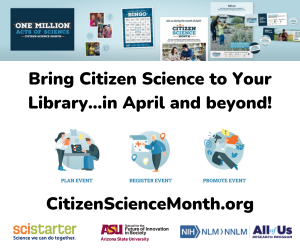When 24 Hours Doesn’t Feel Like Enough

If you’re like me, you’re always trying to figure out where time went and how to fit in just one more task. Deadlines, meetings, customer service, everything has to be accomplished. Amidst all these responsibilities, the hardest part can easily become managing your time.
Do a Google search for time management. Better yet, search your library’s catalog. You will find that numerous people are writing about this topic. Because you’re probably reading this post if you feel like you don’t have enough time in the day, I’ve pulled together a few of my favorite suggestions.
Planning: Many of the experts recommend planning out your day. I keep a running to do list, and I also try to fully utilize my Outlook calendar for reminders and appointments. Many times I come into work with an agenda for the day, which is promptly crushed when life happens. I appreciated the advice that was given by Elizabeth Grace Saunders in an interview where she said to schedule working on projects enough in advance that you had some cushion time for when you have to put it off for more immediate needs or issues that arise. She described it like a canoe trip with times when you had to be at specific locations, but with enough flexibility for unexpected obstacles.[1]
Prioritizing: When you look at your list of items to accomplish, try to mentally put them in order of importance. Recently, I started using different colors on my list to signify what needed to be accomplished more immediately and what could wait. The Mayo Clinic’s article on time management points out that large amounts of time can be spent on less important responsibilities, so knowing what is more pressing can be helpful to determine where to put your effort.[2]
Focusing: Focus takes effort, and it definitely isn’t easy. One big issue can arise from email. Many times I have read or heard advice that said to schedule time for your email, and close it while you’re working on something else. I am horrible about seeing the little window pop up with new email and being automatically distracted. As an experiment, I closed Outlook while working on this post. (I’ve also heard some people turn off the pop-up notification.) I have to admit, writing was much easier when I wasn’t being informed every time something showed up. It also kept me from sending every email I thought of that very moment. Instead, I just jotted down a reminder to myself.
One post I read on Harvard Business Review had a comment that struck a chord with me: “Given the pace of work and the level of input in modern society, time management is dead. You can no longer fit everything in — no matter how efficient you become.”[3] I find this statement to be both depressing and liberating. It’s sad to think I won’t be able to do everything, but nice because some of the pressure disappears. If you did one of those searches for time management, you know how much you could read on the topic. More advice exists than could be put into a short blog post. What are some things you’ve found that help you manage your time?
[1] IdeaCast, HBR. “Take Control of Your Time.” HBR Blog Network. March 21, 2013.
http://blogs.hbr.org/ideacast/2013/03/take-control-of-your-time.html (accessed June 5, 2013).
[2] Mayo Clinic Staff. “Time management: Tips to reduce stress and improve productivity.”
MayoClinic.com. June 20, 2012. http://www.mayoclinic.com/health/time-
management/WL00048 (accessed June 5, 2013).
[3] Saunders, Elizabeth Grace. “How to Allocate Your Time, and Your Effort.” HBR Blog Network. January 7, 2013. http://blogs.hbr.org/cs/2013/01/how_to_allocate_your_time_and.html (accessed June 5, 2013).
Tags: time management







